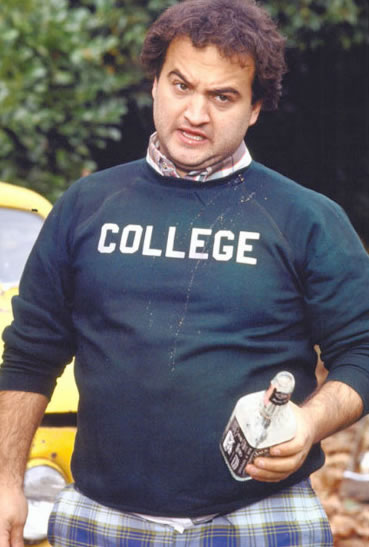
If you’re Canadian like me, you’ve probably heard through the internet grapevine that Margaret Atwood wrote an amusing piece on the hair of the contenders in this year’s federal elections, particularly the coiff of Canada’s dickish, control-freaky Prime Minister, Stephen Harper. It was published in the National Post — then suddenly unpublished.
The explanation, as put in an email from the Post’s senior vice-president Gerry Nott:
“The column was taken down because the necessary fact checking had not been completed. Senior editorial leadership at Postmedia [the media network to which the National Post belongs] also had not concluded whether the column was aligned with the values of the National Post and its readers.”
The likeliness of the Post publishing anything without fact-checking it is practically zero; fact-checking is part of newspaper operations 101. Furthermore, Atwood says that the Post’s editors received her article nine days prior to publishing, which is plenty of time to review an article that doesn’t even cross the 1,000-word mark.
The more likely occurrence is that — to use Gerry Nott’s own words — the column wasn’t “aligned with the values of the National Post“, especially when you consider their track record for endorsing terrible conservative candidates.
Jeet Heer, senior editor at The New Republic, said it well on Twitter:
So every Post column must now align with “the values of the National Post and its readers”? Do these people understand what columns are?
— Jeet Heer (@HeerJeet) August 22, 2015
Inescapably, based on their own words, we can conclude National Post management doesn’t know what a newspaper is and how it runs.
— Jeet Heer (@HeerJeet) August 22, 2015
1. This might be good excuse to talk about fact-checking excuse used by National Post. https://t.co/gXrfxuNTGV
— Jeet Heer (@HeerJeet) August 22, 2015
2. Op-ed columns are not normally fact checked at National Post. I’ve written some and can say that with confidence.
— Jeet Heer (@HeerJeet) August 22, 2015
3. If, hypothetically, you do error-riddled column that slimes feminists involved in court case, National Post will not care.
— Jeet Heer (@HeerJeet) August 22, 2015
4. If, hypothetically, a famous novelist alludes to corruption and Prime Minister’s office objects, then “fact-checking” is raised.
— Jeet Heer (@HeerJeet) August 22, 2015
5. In effect, fact-checking is a pretext for post-facto editing, done at the service of political and corporate power. The end.
— Jeet Heer (@HeerJeet) August 22, 2015
Since then, the Post has republished the article, with a couple of sentences mentioning millionaire donors to Harper’s campaign removed, for reasons I will leave to the reader to deduce.
For the benefit of those of you who haven’t had a chance to read it, here’s the original, unabridged article, posted as a public service. Enjoy!
Margaret Atwood: Hair is in the election-season air, but is it crucial to the question of your vote?

The caption for this photo in the National Post read: Liberal Leader Justin Trueau speaks to the media during a federal election campaign stop at the annual gay pride parade in Montreal, Sunday, August 16, 2015.
Hair is in the election-season air. I didn’t put it there – those attack ads on Mr. Trudeau introduced the subject, with “Nice hair, Justin” – but now that the hairball has been coughed up, so to speak, let’s consider it.
Hair is a big deal. People spend a lot of time worrying about their hair and a lot of money altering it. Some sculpt it, some dye it, some shave it off. Some hide it under scarves and hats because God, in his or her many forms, has taken a serious interest in hair – telling people to grow it, conceal it, cut it, refrain from cutting it, wear a wig in place of it, not let Delilah hack it off, and so on. Some are born with hair, some achieve hair, and some have hair thrust upon them through laws and customs. Some hair goes missing, leaving either a Mr. Clean macho look or a bowling-ball one, as with Mr. Duffy. Some hair is curly, some is straight. Luck of the draw.
Fashion can be a cruel taskmistress, hair-wise. Many are the photos of us with odd hair from former times that we presently seek to conceal. (Ducktails? Beatles bangs? Flowing hippy locks?) My own hair can be interpreted as “Pre-Raphaelite” or “frizzy” depending on the hostility level of the interviewer. I’ve lived through those 50s smoothening adventures with a product called Dippity Do as well as the nightmare straight-hair Twiggy years of the late 60s, which involved other failed processes. After that I gave up.
But back to the hair-strewn attack ads of the Conservatives. What’s the point? Women will recognize “Nice hair” as a pickup line, so I suppose addressing it to a political opponent is a way of girlifying him: the Conservative ad-writers would see girlification as inherently demeaning, their view of girls and women being what it is. But “Nice hair” makes them sound a bit envious, too: no one has ever accused Mr. Harper of having “nice hair.” It also makes them sound trivial. Hair, an election issue? Really?
But let’s suppose that hair is indeed crucial to the question of your vote. Is hair the measure of a man, or woman? Is character destiny, and is hair a clue to character?
Let’s try this hair quiz:
Of the three national male leaders, which one travels with a personal grooming assistant – lavishly paid for in whole or in part by you, gentle taxpayer – so that none of his hairs will ever be out of place, supposing they are indeed his and not a wig, as some have supposed? (Hint: Initials are S.H.)

The caption for this photo in the National Post read: In the name of all that’s decent: can’t the press at least let Stephen Harper grieve a little?
Which leader, on the other hand, doesn’t need such an assistant because his hair is “nice” enough already? (Hint: initials are J.T.)
And which one wouldn’t know what a personal grooming assistant was if he fell over one? (Hint: Initials are T.M.)
Yes! You got it right! Smart you!
Next: Why should the taxpayer foot the bill for the micromanagement of Harper’s hair? Is his hair in the public interest? Is it crucial infrastructure? A matter of national security? Or is the pampering just a matter of narcissistic vanity?
Maybe it wasn’t altogether wise for the Conservatives to bring up hair: it focused the hair spotlight. Start with one candidate’s hair and we can’t help thinking about the topside garnishments of the others – not only what they might signify, but also what they might be costing us.
Will the Conservatives now lay off on the personal-appearance attack stuff? Doubtful: they’ve got a thing for it. Jean Crétien’s paralyzed face, laugh a minute! Trudeau’s hair, woo-woo! Who’s next? “Nice tits, Elizabeth?”
Wait! I can see it coming! Mulcair’s beard! The Conservatives will have trouble with a straight-out character attack on Mulcair because they regarded the guy so highly they tried to hire him themselves, so they’ll have to fall back on the beard: “Thomas Mulcair. What’s he hiding behind that beard?”
Don’t go there, Cons! Because then we’ll all start thinking about “hiding.” Why is Harper still coyly hiding the two-million-dollar donors to his party leadership race? Don’t we have a right to know who put him in there? Who’s he working for, them or us?
Why is he hiding his campaign events from the public? Is he running for Prime Minister of the whole population – those whose taxes pay, in whole or in part, for him and his hair – and if so, why isn’t he talking to all of us? In his earlier quoted comment, “I don’t care what they say,” who are they? Aren’t you agog to know if you’re on Harper’s hidden “enemies list”?
Why is he hiding what he knew about the Duffy cover-up, and when he knew it? He’s given four mutually exclusive answers so far. Is there a hidden real answer?
And if he’s hiding all this, what else is he hiding?
























